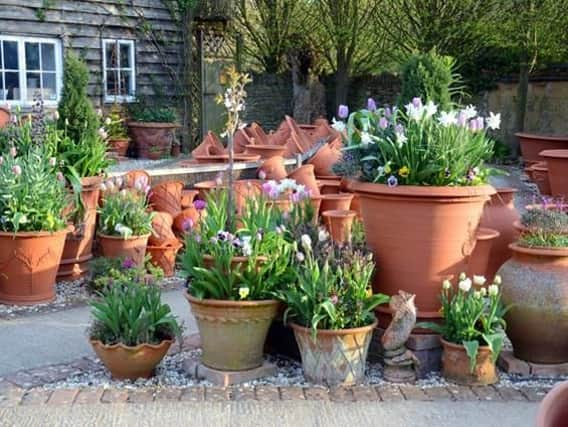Be eco friendly - seven ways to reduce plastic use in the garden


Garden gurus from BillyOh.com have revealed six tips for cutting down on single-use plastics at the allotment or in the garden.
Many homeowners get into gardening to preen their backyards, grow their own produce or simply to get back in touch with the natural world, but gardening can generate masses of plastic waste as it’s found in almost every aspect of the hobby.
Advertisement
Hide AdAdvertisement
Hide AdBut a lot of this plastic won’t make it into the recycling bin, meaning it will take hundreds of years to degrade.
A spokesperson for BillyOh.com commented: “We can’t deny that plastic is extremely useful – particularly in the garden, because it’s light, flexible and durable against the elements.
“For this reason, it’s practically everywhere, in netting, fleece, hoses, wellingtons, pots and tools.
“But as responsible gardeners, we should be doing all we can to bring our plastic consumption down.
Advertisement
Hide AdAdvertisement
Hide Ad“Reuse where possible, question every bit of plastic that comes into your garden, and put these seven steps into play to reduce your single-use plastic consumption outdoors.”
1. Use terracotta pots instead of plastic ones
Although they’re slightly more fragile, traditional terracotta pots are able to break down, so are more environmentally friendly than plastic alternatives.
2. Make your own potting compost
By starting your own compost heap, you won’t have to buy big plastic bags of the stuff from shops. If you’re not able to do this, bulk order potting compost form your local builders’ merchants or garden centre.
3. Ditch plastic labels – replace with wood
Laminated labels are often used in the garden to help identify plants because they’re waterproof, but wooden lollipop sticks can serve the same purpose. You could even sand off the writing and re-use if you’d like to save yourself a penny or two.
4. Make your own plant feed and bug repellents
Advertisement
Hide AdAdvertisement
Hide AdHomemade garden sprays can be made out of things you probably already buy, such as dish soap, cooking oil, garlic and vinegar. This will save on plastic bottles, which often can’t be recycled.
5. Use a metal watering can
This is a pretty obvious one, but a metal watering could last a lifetime, whereas plastic cans can go brittle and eventually shatter.
6. Make your own seed starters
There’s a wealth of information online about making your own seed starter pots, using household items such as toilet rolls, milk cartons, or even egg shells.
7. Use metal or wooden tools
Next time you have to purchase new garden tools, consider metal or wood ones instead of plastic. They might be a little pricier, but they’ll likely last longer and will prevent you from having to throw more plastic away in the long run.